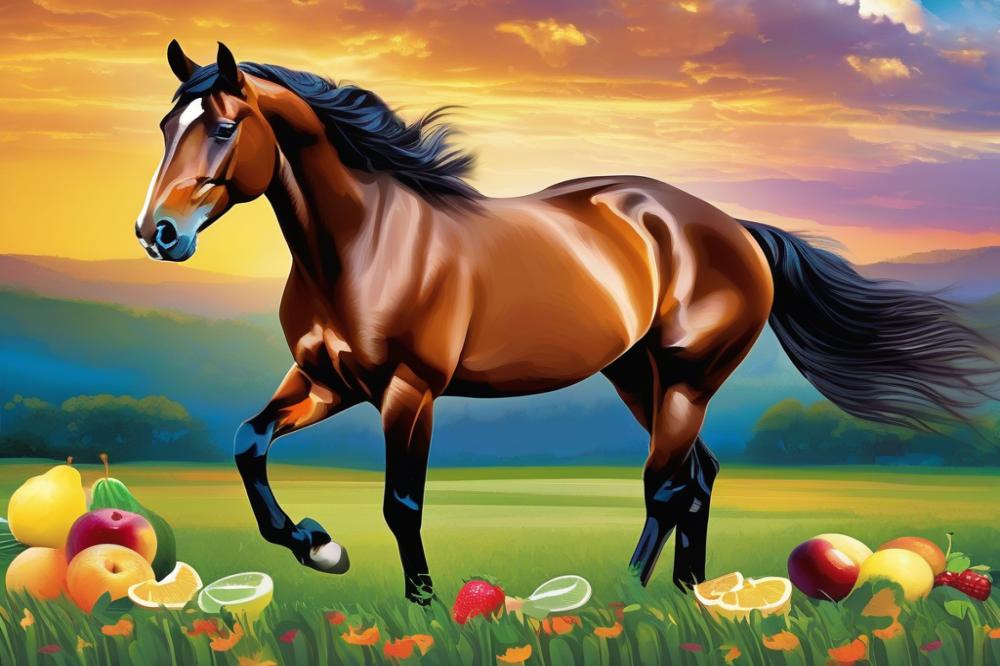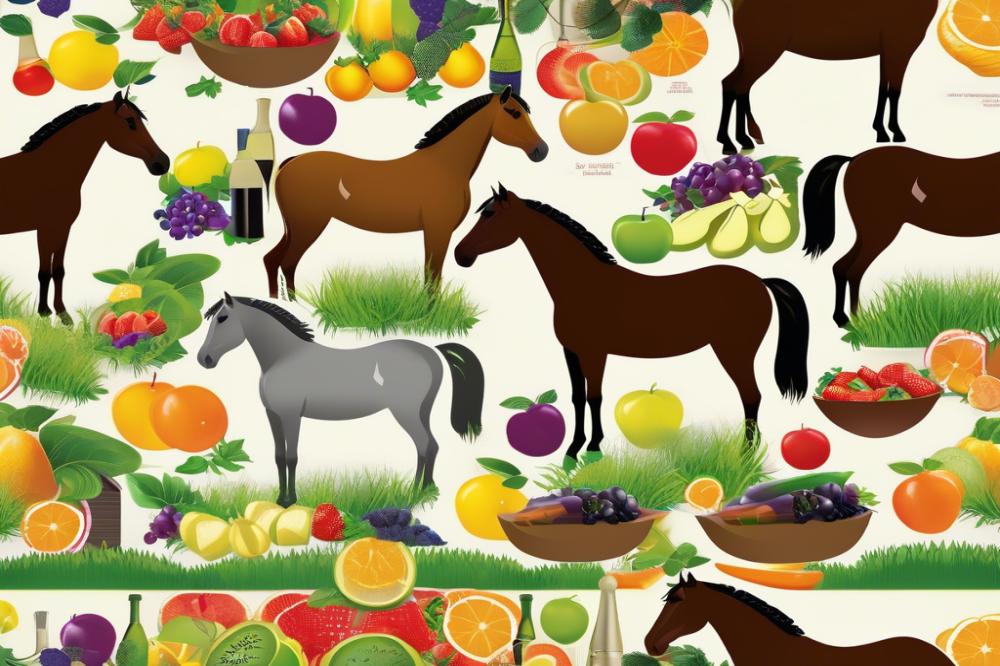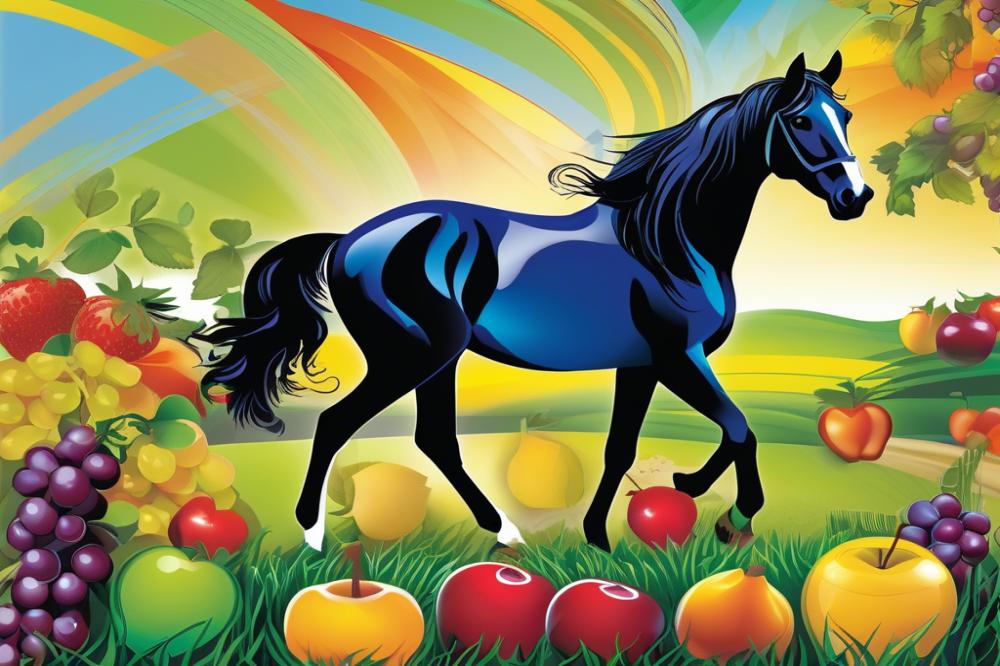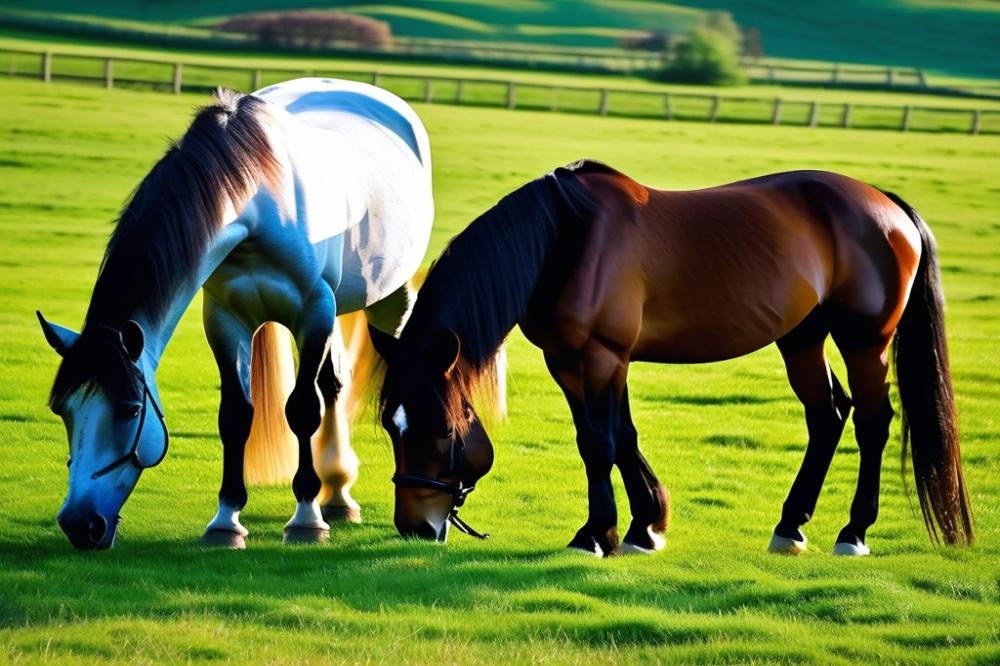Introduction
Proper nutrition holds a fundamental position in the overall health and performance of horses. An equine diet must be thoughtfully composed of essential nutrients to foster athleticism and well-being. Neglecting this vital aspect can lead to drastic consequences, such as decreased energy levels and diminished performance. Just as a well-tuned machine requires quality fuel, a horse thrives on a balanced intake of proteins, carbohydrates, and fats. Each horse has distinct needs, influenced by factors like age, activity level, and health status.
Without a comprehensive understanding of equine nutrition, caretakers can inadvertently set their beloved companions up for failure. The balance of minerals, vitamins, and fibers must not be overlooked. They are not merely optional—they are foundational to a horse’s vitality. An improper #diet# can create a cascade of health issues, with symptoms ranging from lethargy to serious metabolic disorders.
Thus, knowing how to navigate the intricacies of a horse diet is essential for anyone invested in equine care. Imagine a racehorse fueled by poor nutrition; the outcome is predictable. Stakeholders in the equestrian community must prioritize nutrition to achieve optimal health. With a tailored approach, horses can reach their greatest potential, showcasing their unique abilities to their fullest.
For more detailed insights, explore the link on equine nutrition and the significance of a well-structured horse diet. This knowledge empowers caretakers to make informed decisions, ensuring that horses remain vibrant, strong, and ready to excel.
The Role of Equine Nutrition in Horse Diet

Equine nutrition encompasses the science of feeding horses. It involves understanding the requirements of these magnificent animals and the ways to meet their dietary needs. Multiple components make up a horse’s diet, each playing a distinct role in promoting health and performance.
Essential nutrients can be categorized into several groups, the most notable being forage, grains, vitamins, and minerals. Forage, which primarily consists of hay and pasture grasses, serves as the cornerstone of equine nutrition. grains can provide concentrated energy sources, while vitamins and minerals are critical for various biochemical processes. A balanced diet is crucial for overall well-being.
In the world of horse care, forage reigns supreme. It should be the foundation upon which all other dietary elements are built. Horses are designed to graze; their digestive systems thrive on fiber-rich foods. When deprived of adequate forage, a horse may experience a range of health issues. Behavioral problems can also arise, including boredom and anxiety, akin to a human skipping breakfast and turning grumpy. Offering a sufficient amount of hay ensures that horses remain content and more relaxed.
Each nutrient fulfills a specific purpose. Proteins are essential for muscle development, while carbohydrates provide the energy necessary for work and play. Vitamins, on the other hand, support metabolic functions and overall health. Minerals influence everything from bone strength to reproductive health, and deficiencies can lead to significant complications.
While grains can boost energy levels for performance horses, overreliance can lead to digestive issues. It’s vital to balance these components wisely. A thoughtful approach keeps horses healthy and vibrant, ensuring their bodies receive what they need. Owners must also be mindful of the horse’s workload, age, and individual requirements, as these factors can influence nutritional needs.
In short, understanding equine nutrition is not a mere academic exercise; it is a responsibility. The art of crafting a diet for a horse is akin to being a chef carefully selecting ingredients for a five-star meal. Every decision counts. Regularly assessing the quality of forage and the presence of essential elements in the diet will go a long way toward maintaining optimal health and performance.
Understanding Different Types of Horse Feed

Hay and Its Nutritional Value
When it comes to feeding horses, hay often takes center stage. It serves as the primary forage source and can vary widely in its nutritional content. Timothy, alfalfa, and orchard grass provide essential fibers to keep a horse’s digestive system functioning well. Each type of hay comes with its own set of pros and cons. For instance, alfalfa is protein-rich, perfect for young, growing horses, while timothy is lower in protein and ideal for maintaining a healthy weight.
Quality is crucial. Bright green, leafy hay generally indicates freshness and nutrient density, while brown, stemmy hay may signal age and lack of nutritional value. Remember, a horse’s well-being hinges heavily on what goes into its feed. An inadequate hay choice could lead to a myriad of health issues, including colic or obesity.
Grains: Types, Benefits, and Risks
Grains are another staple in a horse’s diet, offering concentrated energy that hay might not provide. Common types include oats, barley, and corn. Each has its unique set of characteristics. Oats are often favored for their digestibility and fiber content, while corn is a high-energy option but can lead to excessive weight gain if not monitored.
While grains can boost a horse’s energy, they also come with risks. Over-feeding can lead to digestive disturbances or laminitis, a painful condition affecting the hooves. Understanding the balance between energy needs and risks is vital for horse owners. It’s like walking a tightrope; too much grain can tip the scales toward trouble.
Supplements: When and Why They Are Necessary
Supplements can play a pivotal role in enhancing a horse’s diet. Certain vitamins and minerals might not be fully covered by hay and grains. For example, if your horse lacks exposure to certain environmental conditions, equine nutrition can be supplemented effectively. Common supplements include fish oil for skin health and joint support, or electrolyte powders to keep hydration levels in check after strenuous activity.
Determining the necessity of supplements involves assessing the specific needs of the horse. Considerage factors like age, workload, or even health conditions. Some horses may thrived without additional products while others may require them to reach their optimal state. Always consult with a professional to navigate these decisions wisely.
Establishing a Feeding Schedule

A consistent feeding schedule is crucial for the health and well-being of horses. Just like humans thrive on routine, equines benefit from knowing when their next meal will arrive. This regularity maintains their digestive health and minimizes stress. Horses are creatures of habit, and having set feeding times fosters a sense of security.
Portion sizes play a significant role in managing a horse’s weight and energy levels. A general guideline is to feed 1.5% to 2.5% of their body weight in forage daily, but this varies based on the individual’s needs. For instance, a working horse may require more energy-rich feed than its pasture companion. Adjust portions based on activity levels and body condition. Remember, a chubby pony isn’t always a happy pony.
Seasonal changes can influence the nutritional needs of horses as well. In colder months, they might need extra calories due to increased energy expenditure for maintaining body temperature. Likewise, when the grass is lush and abundant in the spring, it’s prudent to consider how this rich forage impacts their diet. Monitoring their condition throughout these shifts can help in adjusting the feed accordingly. Performance demands also require evaluation; an athlete in training isn’t a couch-potato! Always keep an eye on how your horse is responding to the feed changes.
When adjusting a diet, it’s essential to introduce new feeds gradually. Abrupt changes can lead to digestive upset. Mixing their current feed with the new one for a week or so could prove to be wise. Each horse has its own preferences. Some may turn their nose up at a new grain, while others might be eager to gobble up whatever is on offer.
Being observant is key. Rarely does a horse lie when it comes to its appetite. Changes in eating habits, weight fluctuations, and overall demeanor can signal a need for a feeding schedule review. Who knew horses could be such picky eaters? Remember, a little patience goes a long way when you fine-tune their menu.
Impact of Nutrition on Horse Health and Performance
Diet significantly influences a horse’s overall health. Just as humans need a balanced diet to thrive, horses require essential nutrients to function at their best. A well-rounded approach to feeding horses can lead to improved vitality and longevity. In contrast, neglecting dietary needs can spiral into a multitude of health issues. For instance, insufficient vitamins and minerals can lead to weakness and susceptibility to diseases.
When it comes to equestrian sports, the role of nutrition becomes even more pronounced. Properly nourished horses show improved stamina and agility, crucial for competing in various disciplines such as jumping, dressage, and barrel racing. Imagine a horse galloping around a course, its muscles honed and energy levels high—this image is often a direct result of meticulous attention to diet. Owners who prioritize dietary needs often witness their horses excel in both training and competition.
Poor nutrition can wreak havoc on a horse’s body and spirit. For instance, a lack of fiber can lead to digestive troubles, while inadequate protein may stunt growth in young horses. Behavioral issues can also arise; for example, a horse lacking in essential nutrients may become irritable or restless. One can liken a horse’s nutritional state to that of a finely tuned engine; any lapses can lead to performance setbacks or even injuries.
The connection between what horses eat and their output is clear. Implementing the right feeding regimen can be the difference between a competition champ and a horse that struggles to keep up. It’s essential to recognize that nutrition is not just about filling a feed bucket; it encompasses a deep understanding of individual needs based on age, workload, and health status. Every horse is a character of its own, and recognizing their unique requirements is paramount.
In summary, horse health and performance rely heavily on the quality of nutrition provided. After all, you wouldn’t send an athlete into the field without proper training and nourishment, would you? Think of equine athletes as partners in a dance; harmony between nutrition and performance is crucial for a seamless performance. Investing in proper diet isn’t just a good idea—it’s an imperative step toward a more vigorous and spirited equine companion.
Maintaining a Balanced Diet for Optimal Weight Management
Keeping a horse at a healthy weight involves more than just tossing hay over the fence. Strategies for achieving and maintaining the ideal weight encompass a blend of proper feed selection, regular exercise, and vigilant monitoring. Horses, much like people, thrive on routine. Establishing consistent feeding schedules can prevent overeating and keep your equine friend from becoming a candidate for the next equine carnival.
Body condition scoring serves as a crucial tool in weight management. It’s a simple system, yet it can reveal a horse’s overall health profile. Observing the ribs, fat deposits, and overall shape helps in making informed decisions. Just as a good chef knows when to add a dash of salt, an observant horse owner can adjust their feeding practices based on what they see. A score of 5 on a scale of 1 to 9 signifies an ideal weight. This informs the adjustments needed for horses that stray too far from that number.
Life stages and conditions demand tailored nutritional strategies. Young foals require different dietary needs than senior horses savoring their golden years. Nutrition for working horses differs from that for leisurely retirees. During intense training or performance events, a boost in calories and nutrients ensures that energy levels remain optimal. Conversely, when a horse is on stall rest or experiencing a metabolic condition, a closer watch on caloric intake becomes necessary. It’s like following a recipe; the right ingredients in the right amounts yield the best results.
Regularly weighing your horse can also be a game changer. It’s a straightforward method that many owners overlook. Simply knowing a horse’s weight helps gauge whether adjustments are necessary. Consider investing in a weight tape; it’s an easy, non-invasive way to track changes over time. Just because a horse looks healthy doesn’t mean he is. Much like how people can hide behind baggy clothes, a well-fed horse can conceal underlying weight issues.
Diet changes are inevitable. You wouldn’t eat the same meal every day, right? Horses also require diversity in their diets. Incorporating a mix of hay types, grains, and supplements tailored to specific needs can make all the difference. Furthermore, seasonal changes can affect forage availability and its nutrient profile. Adjusting the hay type, especially when transitioning from summer to winter, ensures a horse continues to receive balanced nutrition.
In summary, maintaining a balanced diet is crucial for weight control in horses. With solid strategies, keen monitoring, and appropriate adjustments for various life stages, horse owners can promote a robust and healthy life for their equine partners. After all, a horse that feels good looks good. And in the world of horse ownership, a happy horse means a happy owner.
Nourishing Your Horse: A Vital Journey
In the intricate dance of horse care, nutrition emerges as a cornerstone of health and performance. Delving deeper into the distinct needs of each animal reveals that every horse is a unique individual, with specific nutritional requirements influenced by age, lifestyle, and workload. Maintaining a balanced intake of essential nutrients fortifies their physical stature and contributes to overall vitality. The vibrant, shimmering coat and the spirited demeanor of a horse often reflect the quality of its nourishment.
Life in the barn presents countless opportunities for growth and bonding. Observing the way a horse savors its rations is a testament to its innate instincts, connecting the animal to its natural environment. Moreover, the relationship between proper nutrients and a horse’s energy levels cannot be overstated. A well-fed horse is not only a healthy one but also a partner ready to engage with its surroundings, harnessing all its strengths.
Balance is key, as a diet skewed too heavily in one direction can lead to complications. For instance, excessive intake of hay or inappropriate quantities of grains can set the stage for issues that disrupt their well-being.
Building a comprehensive feeding strategy invokes a deep understanding of a horse’s physical cues. Each horse communicates needs through its behavior. An observant caretaker who tunes into these signals can navigate the labyrinth of nutritional choices effortlessly. Studying the art of feeding is like drawing a map through a dense forest; it requires patience, knowledge, and careful consideration.
Entwining the joy of nurturing with scientific principles illuminates a path toward optimal care. By embracing the importance of adequate nutrition, caretakers not only fulfill a responsibility but also foster a thriving bond that enhances the experience of horse ownership. So, let’s step forward with purpose. Equip yourself with knowledge and tools to promote a brighter future for your equine companions. Visit here to explore enriching resources designed for devoted horse owners. Your efforts will echo in the vitality of your horses for years to come.



